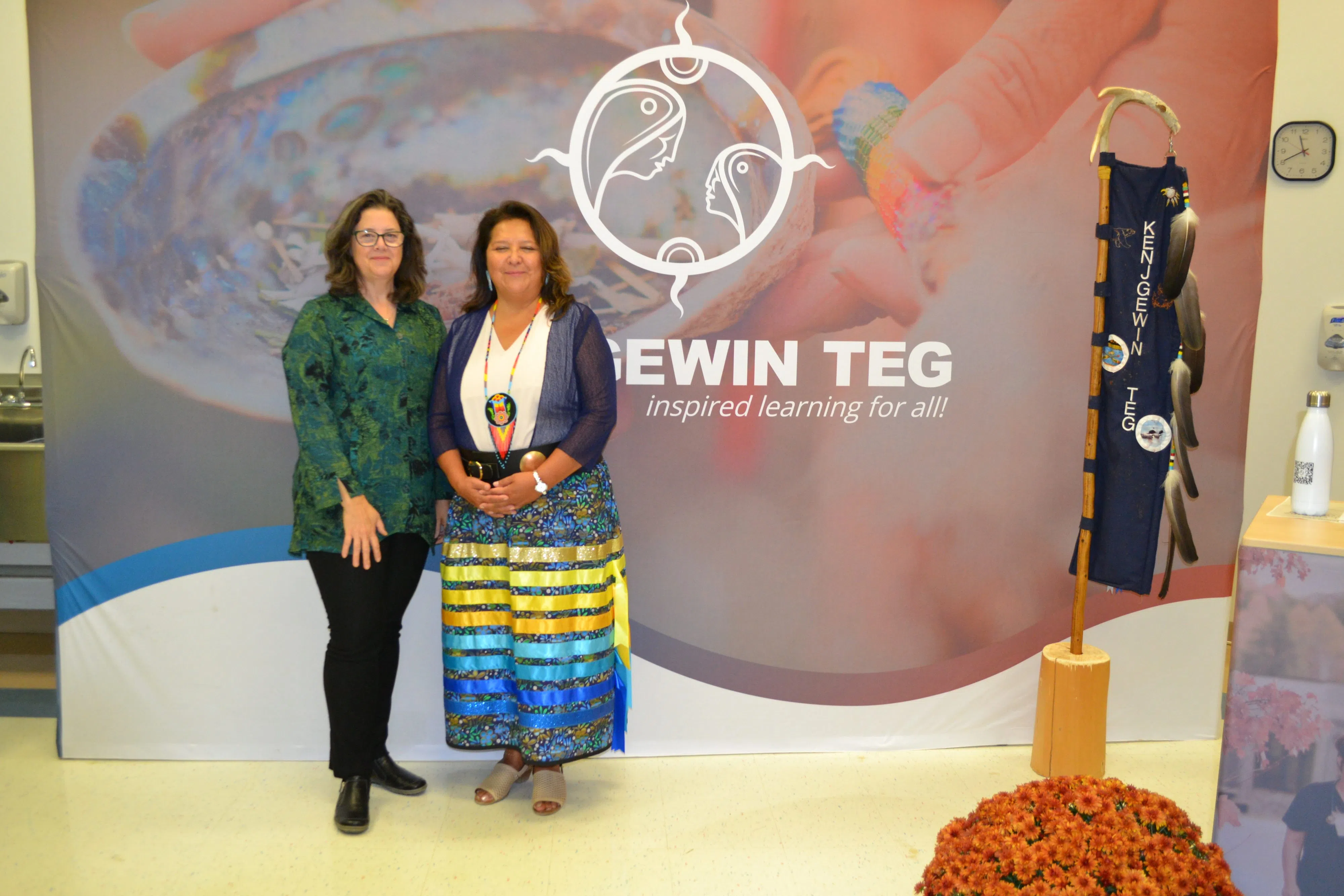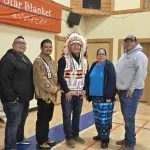
Mastercard Foundation invests $35 Million in Sask. Indigenous Education
The Mastercard Foundation has made a significant, and unconditional, financial investment to three Indigenous academic institutions in Saskatchewan.
First Nations University of Canada (FNUniv), Gabriel Dumont Institute (GDI), and Saskatchewan Indian Institute of Technologies (SIIT) will each receive $10 million to use at their discretion to accelerate programs and innovations over the next ten years. The University of Saskatchewan will also receive $5 million to scale and sustain Indigenous partnerships and programs.
In total, the Mastercard Foundation is investing $235 million in funding to 30 post-secondary institutions and Indigenous-led organizations across Canada.
“We really looked at where we could recognize real leadership, and recognize it in a way where they could do so much more,” said Jennifer Brennan, Programs Canada Senior Director at Mastercard Foundation.
“Indigenous institutions are such a great example of the great work being done, but often with a lack of stable funding. So I think it was in our view that we could really help them plan to scale opportunities for the future in brand new ways,” she said.
The investment marks the ten-year anniversary of the Truth and Reconciliation Commission of Canada’s (TRC) Calls to Action, which highlighted education as a vital pathway to Reconciliation. Brennan said the investment recognizes those who have made critical strides in Reconciliation.
“There’s been so much success achieved, there’s been so much focused work and attention on building relationships and ensuring education in grounded in language and culture,” said Brennan. “It was our view that in taking forward this new funding, we could back some of that leadership.”
As part of their total investment, the Mastercard Foundation is gifting $25 million to the National Centre for Truth and Reconciliation, in order to secure and extend educational programs for future generations.
The $235 million contribution to Indigenous education is one of the biggest in Mastercard Foundation’s history, and one they believe will have profound impacts on Canada.
“We feel very strongly that this investment in Indigenous youth is an investment that benefits the entire country. It enables Indigenous youth to take up their place in education and employment opportunities, and really helps lead the country into the future,” said Brennan.
First Nations University of Canada
Dr. Jacqueline Ottmann, FNUniv President, said plans for the $10 million will be taken to their board of governors for approval. While those plans are still in development, Ottmann said a variety of uses are possible, including contribution to their northern campus in Prince Albert, strengthening and developing new student programs, additional wellness supports for student, and expanding campuses at their Regina, Saskatoon, and Prince Albert locations.
“We are running out of space at each of our campuses, which is a good problem to have,” said Ottmann, highlighting that FNUniv has graduated over 6,000 students from their campuses.
“More students is always the goal, as well as to communicate to students across the province and Canada that we are strong option for them,” said Ottmann.
Ottmann said the type of investment given from the Mastercard Foundation – one with no strings attached – is rare from any type of donor.
“I was overwhelmed with the generosity because typically donor money is targeted,” she said.
“At the 10-year anniversary of the Calls to Action, impact Indigenous and non-Indigenous organizations that are supporting Indigenous youth across the country is incredibly meaningful. I hope that is something other organizations can emulate.”
Gabriel Dumont Institute
A strategic manner to help stabilize GDI and embrace modern technology, is the approach the board of governors will take with the funding, said GDI CEO Brett Vandale.
Currently, GDI lacks its own student information system, which will be one of the likely priorities. Additionally, GDI could use the funds to continue to preserve and revitalize Métis culture and language, including repatriating artifacts for their museum, and upgrade their finance and human resources systems, the latter of which is currently paper-based.
“This will help us strengthen and preserve Métis culture and history, which is critical for us as we move forward,” said Vandale.
“Ensuring we that have acess to Elders within our educational programs and services, to make sure students have that support when they need it – we can see this (funding) help continue and expand that.”
GDI will also consider increasing their student body with additional program offerings, he said.
“Reconciliation education is the critical mechanism that will eliminate the education and employment gap between the Indigenous community and non-Indigenous Canadians. This investment will allow us to have self-determination, which is critical,” said Vandale.
“I applaud the Mastercard Foundation for their approach.”
Saskatchewan Indian Institute of Technologies
“It’s going to make a tremendous impact on our institution and our communities in Saskatchewan,” said CeCe Baptiste, VP of Finance at SIIT.
“An investment of this magnitude and nature, the Mastercard Foundation is trusting us essentially on knowing what we need to to in order to enhance or capacity and sustainability.”
Baptiste said SIIT has a long list of priorities they are considering in regards to the funding. With three campuses and over 35 learning centres, funding may be allocated to the operation of those facilities. She also referenced several types of student supports, including wellness, academic, spiritual, housing, and food security that are priorities at SIIT.
“There’s a huge list of things we are considering that we can start addressing,” said Baptiste. “We will ensure we do things the right away in representing the needs of First Nations communities.”
Approaching their 50th year anniversary, Baptiste said the funding opens possibilities for the next 50 years of learners.
“It’s allowing us to dream. It’s wonderful.”

